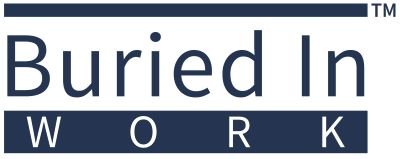What is a payable on death designation (and how it can impact you and your family).
When it comes to estate planning, there are various tools and strategies available to ensure a smooth transition of assets after someone passes away. One such tool is the Payable on Death (POD) designation. In this blog post, we will explore what a POD designation is, how it can impact you and your family, and why it is an essential aspect of estate planning.
Understanding Payable-on-Death Designation
A Payable-on-Death designation is a legal arrangement that allows you to designate a specific beneficiary to receive the assets held in certain financial accounts upon your death. These accounts can include bank accounts, certificates of deposit (CDs), and even brokerage accounts. By designating a POD beneficiary, you can bypass the probate process and ensure a quicker and more efficient transfer of assets to your loved ones.
Benefits of a Payable on Death Designation
Avoiding Probate: One of the primary advantages of a POD designation is that it allows your beneficiaries to receive the assets directly without going through the probate process. Probate can be a lengthy and costly legal procedure, often taking months or even years to complete. By utilizing a POD designation, you can save your loved ones from the hassle and expense of probate.
Privacy: Probate proceedings are a matter of public record, meaning anyone can access information about your assets and beneficiaries. With a POD designation, the transfer of assets occurs privately, maintaining the confidentiality of your financial affairs.
Quick Access to Funds: When a loved one passes away, funeral expenses and other immediate financial needs may arise. By designating a POD beneficiary, they can gain quick access to the funds in the designated account, allowing them to cover these expenses without delay.
Flexibility: A POD designation provides flexibility as it can be easily changed or revoked during your lifetime. If your circumstances or relationships change, you can update your beneficiary designation accordingly, ensuring your assets go to the intended individuals.
Considerations and Limitations
While a POD designation offers numerous benefits, it is essential to consider certain factors and limitations:
Equal Distribution: If you have multiple beneficiaries listed on a POD designation, the assets will be divided equally among them. If you wish to distribute the assets unequally, you may need to explore other estate planning options.
Contingent Beneficiaries: It is crucial to designate contingent beneficiaries in case the primary beneficiary predeceases you. This ensures that your assets pass to the intended individuals even if the primary beneficiary is unable to receive them.
Estate Taxes: While a POD designation can help avoid probate, it does not exempt the assets from estate taxes. Depending on the value of your estate, estate taxes may still apply. Consulting with an estate planning attorney can help you navigate these tax implications.
Conclusion
Incorporating a Payable on Death designation into your estate planning strategy can provide significant benefits for you and your family. By avoiding probate, maintaining privacy, and ensuring quick access to funds, a POD designation simplifies the asset transfer process. However, it is crucial to consider the limitations and consult with an estate planning professional to ensure your wishes are accurately reflected in your estate plan.
About Buried in Work
We have a clear objective - to simplify the burden surrounding estate planning, when someone dies, and estate transition. Whether you’re a do-it-yourselfer looking for information or someone who is looking for a guided fill-in-the-blanks approach, Buried in Work is here to help. Resources are available at www.buriedinwork.com.

